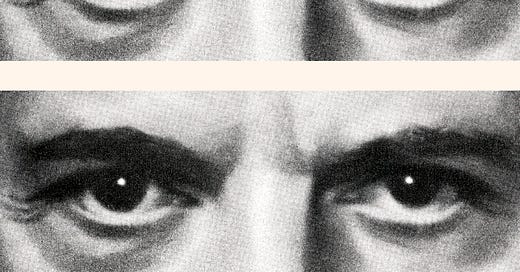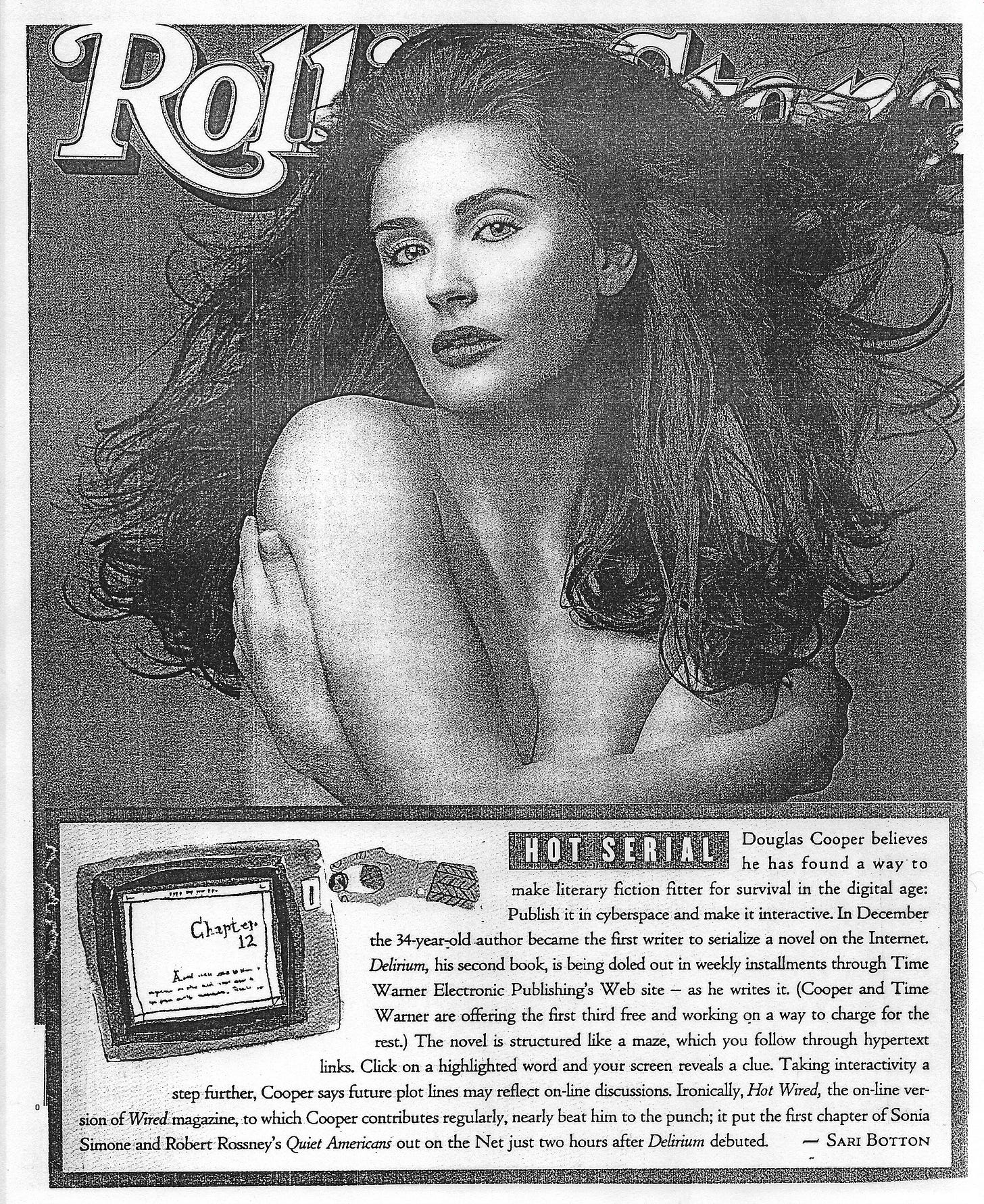Of "Giving Ink," and Inkblots
Making peace with something I published that was polarizing and gave rise to complicated feelings—in my readers, and me.
Ten days ago I published something I instantly felt conflicted about. It was an Oldster Magazine Questionnaire featuring a 70-something poet whose nearly every response oozed Privileged Straight White Male Gaze.
For months, the respondent had been eager for me to publish his poems in the magazine, but I don’t have much of an eye or ear for poetry, and I wasn’t sure a post with a handful of poems was quite right for that audience. I’d tried it once before, and it didn’t garner much of a response.
So I suggested that instead he take The Oldster Magazine Questionnaire, a popular weekly feature for which that publication is best known. He agreed, filled it out, and sent it back.
I was taken aback the first time I read his responses; again and again (and again—to a degree a male friend and colleague described as “pervy”), he wrote about how, in his eighth decade, he was grieving his old sex life—not just the way his body used to function, although that was in there, but his “ravenous sexual appetites and hunger for women” and his ability to attract much younger ones.
I had a visceral reaction—a vague sense of predation (not of me specifically, but of my kind), and a feeling of revulsion. I thought, There’s no way I can publish this. But then I read it again, and some different feelings arose; compassion for a person lamenting a kind of loss that comes with old age—there’s a poignancy that I think applies to any such loss—and self-doubt about my initial response.
I reread it several times and kept coming away with the same complex mix of emotions, each in varying degrees from reread to reread. I debated with myself whether it was advisable to put the piece out into the world. Ultimately I decided to.
One factor tipping me in that direction was something I’d read the week before: David Marchese’s arresting New York Times interview with Jann Wenner—arresting for Wenner’s stark candor, revealing the racist, sexist biases of one of the most influential cultural gatekeepers of all time. To wit, when Marchese asked Wenner why his new book, The Masters: Conversations with Dylan, Lennon, Jagger, Townshend, Garcia, Bono, and Springsteen included only “seven white guys,” Wenner said he found that musical artists who were women or people of color “just didn’t articulate at that level.”
The interview wasn’t only arresting, it was damning. It led to Wenner’s swift ouster from The Rock & Roll Hall of Fame Foundation, of which he was a founder.
(You won’t be surprised to learn that, similarly, the Oldster Questionnaire respondent to which I’m referring listed only straight, white men in response to the question: Is there someone who is older than you, who makes growing older inspiring to you? Who is your aging idol and why?)
I found Wenner’s responses to be enraging, but also incredibly clarifying. They validated the sense I’ve always had of deeply entrenched unfairness in the arts, and arts journalism.
More personally, it affirmed my feeling that in certain arenas, including Rolling Stone magazine, as a woman lacking a certain background and the kinds of connections that come with it, I never stood a chance. In the 90s, for a good while I freelanced writing about various aspects of music and the music industry for The New York Times, Billboard, Creem, Downbeat, Paper, Interview, and other publications, but it was never easy. I had to re-sell myself every single time, for opportunities that were small and low-paying. Again and again I pitched Rolling Stone, but only ever landed a few tiny front-of-book items.
I found the questionnaire-respondent’s answers to be similarly clarifying. Oh, right, I thought, this perspective that shaped the limiting world I’ve lived in is still out there. Not that I had forgotten the staggering, lingering influence of the privileged straight white male gaze. But I and many other editors in my sphere lately default to steering away from it, and so coming upon it now and then feels like an important if bracing reminder.
I’m not going to lie—there was also some satisfaction in witnessing a dude with that perspective not getting what he wants, probably for the first time. More mixed emotions: that satisfaction was tempered by my feeling a bit sorry for him. I’m a thinking, feeling, aging human being myself. I know how painful it can be to stumble upon new limitations as you get older.
Reader reactions to the questionnaire were all over the place. In the comments, some admonished me for giving proverbial ink to someone they considered an arrogant, retrograde prick. Others applauded me. Some expressed a mix of feelings, mirroring my own. A number of readers unsubscribed. The piece served as a sort of Rorschach test.
A couple of women commented that the guy had been insulting and dismissive of them when he was in a position of great power at one of this country’s premier academic institutions. This was not surprising, and it made me feel less confident in my choice to have gone forward with that particular questionnaire.
Since publishing it, I’ve wrestled with whether, overall, I regret doing so. I responded to some of the comments reflecting that, and in a way I maybe shouldn’t have—defending my choice, and being vaguely critical of the respondent. For a few days, I thought I might have found a new barometer for deciding whether to publish something: I’d skip anything I felt I’d need to defend.
But a week-and-a-half later, I’ve come around to not regretting publishing the questionnaire. The piece made me think and feel and question some of my assumptions. It validated my experiences. And it had a similar effect on much of my readership.
I think there’s value in being challenged by things we read, and in not taking an editorial stance that by default sidelines everyone whose perspectives I dislike.





Dear Sari, I am glad that in the end you came around to not regret publishing the questionnaire. Personally speaking, I don't think you did anything wrong by publishing it - it was within the scope of the questionnaire definition, it was on subject, he appeared to be honest, and most of all - what a prove of what we (women and people of color) have felt and fought about all along. We have been dismissed, our feelings and opinions disregarded, but OMG this is exactly what we are up against in this world. The words of the privileged proved it.
Thanks for your work in what has become rare - true journalism!
There’s a huge difference between only publishing those voices (as Wenner demonstrates) and publishing them among many voices that cast what they are saying into different perspectives. You most definitely did the latter, and that’s good journalism, in my book.